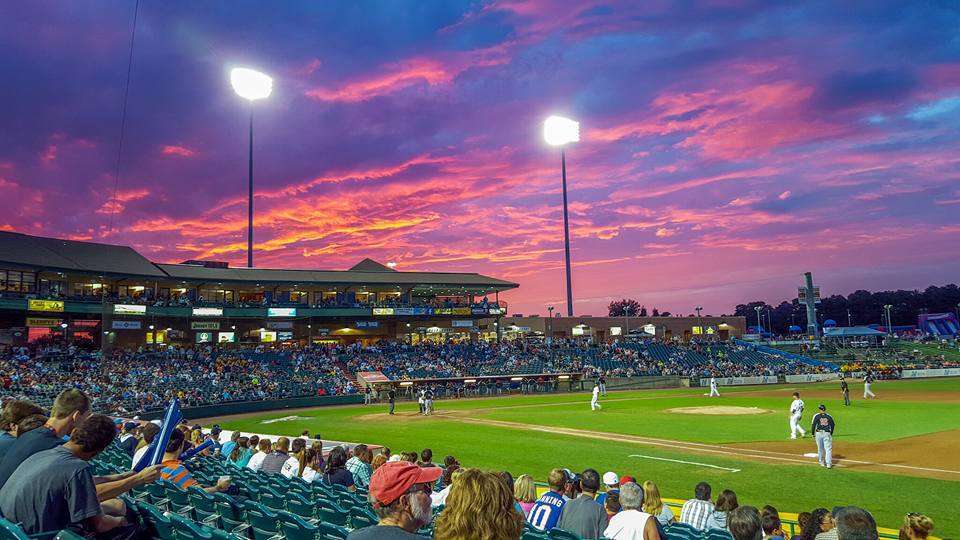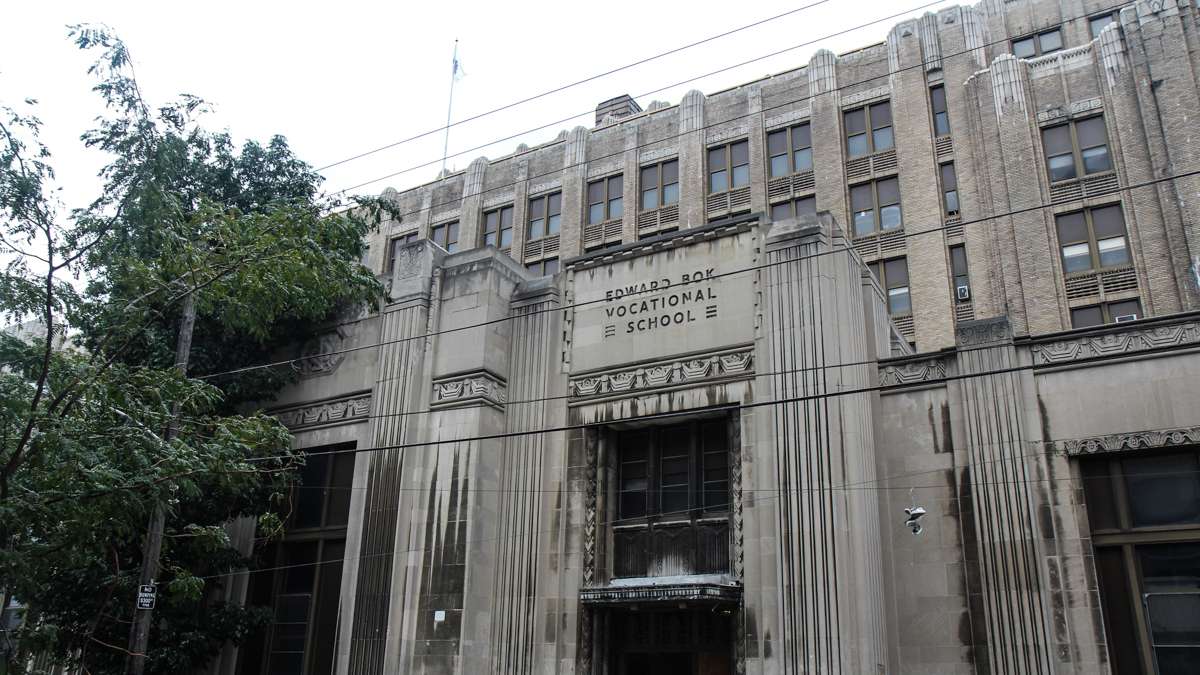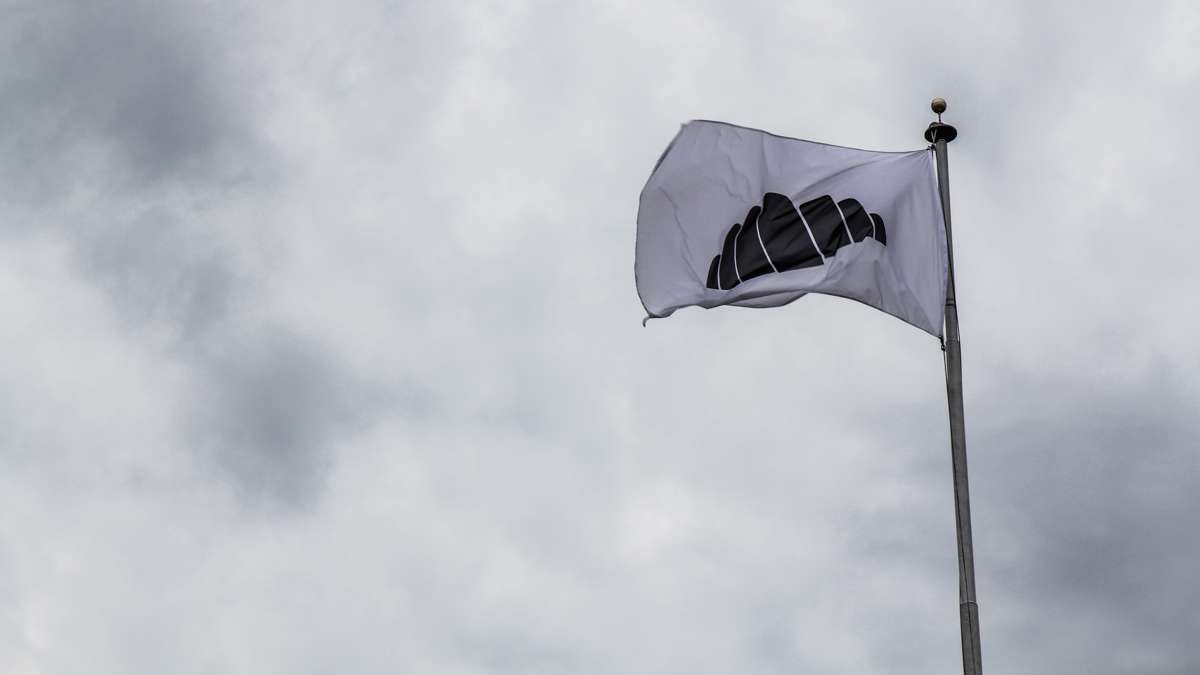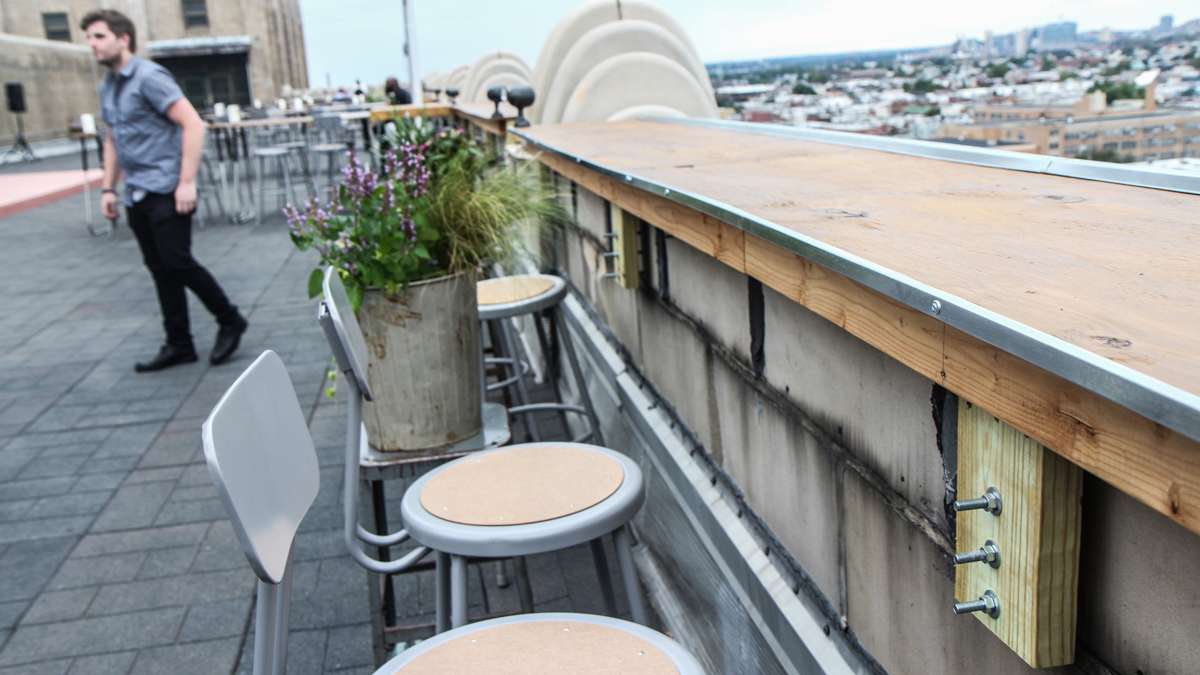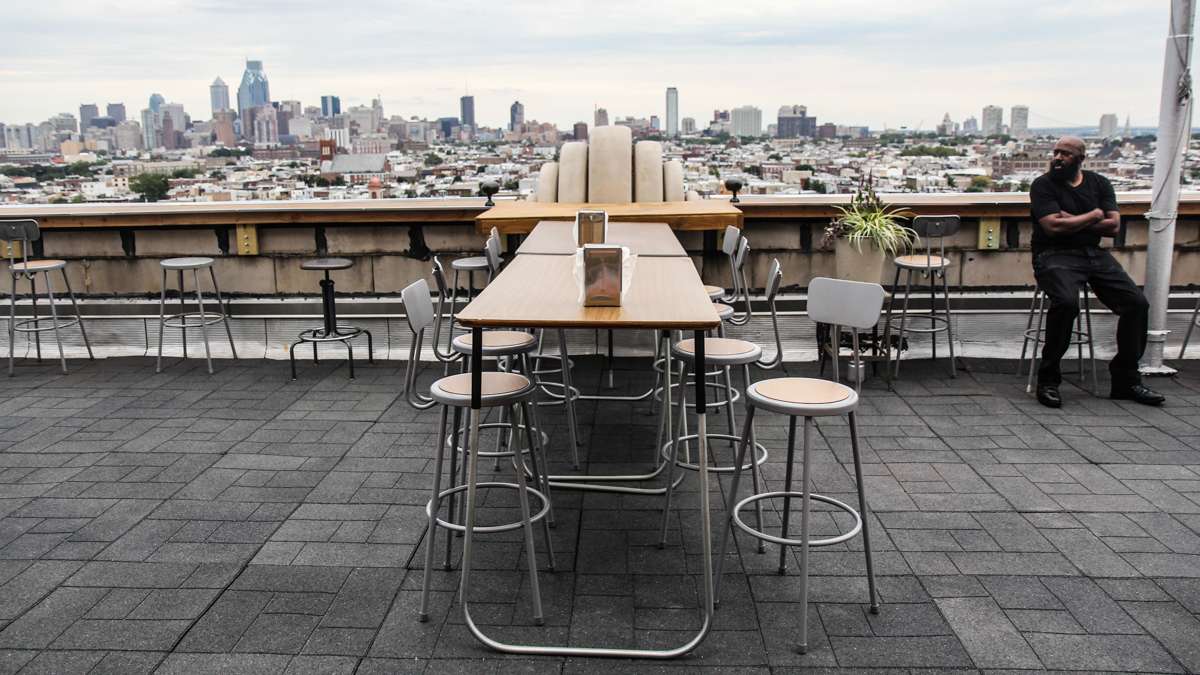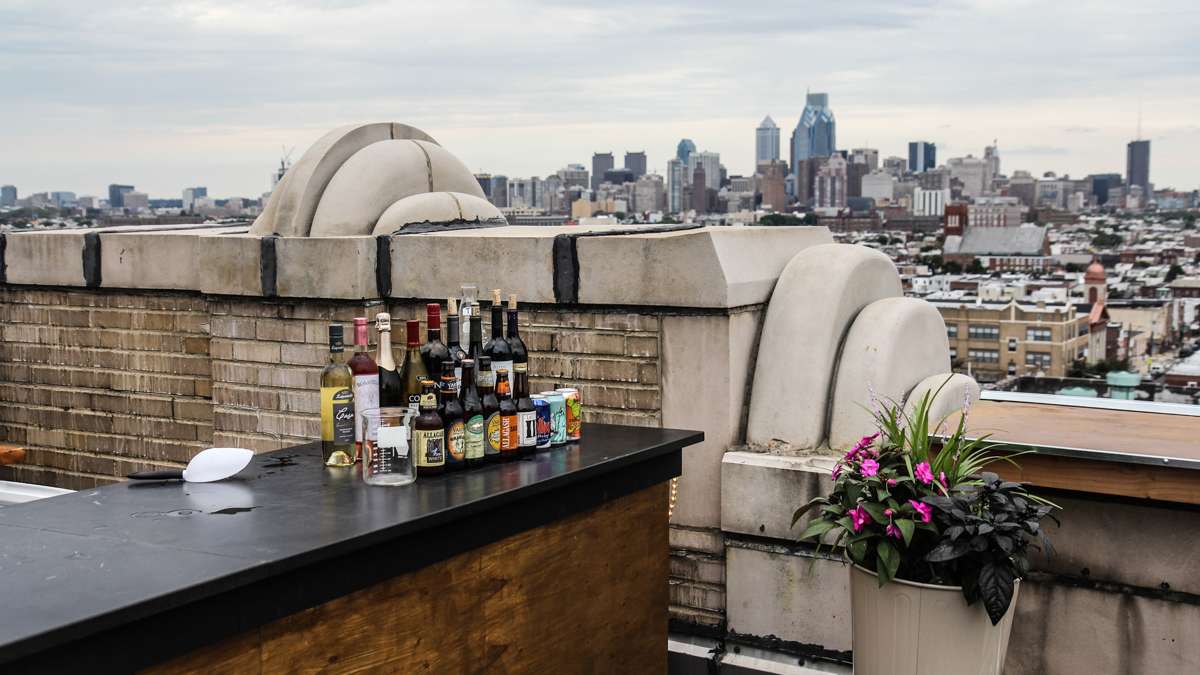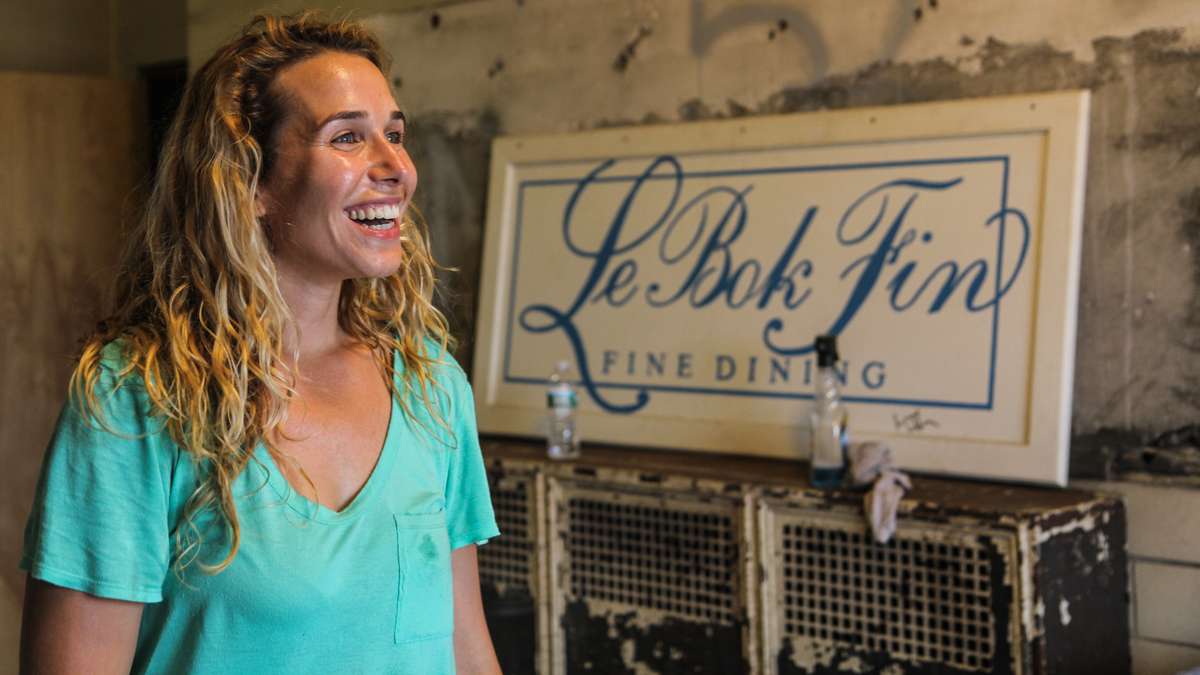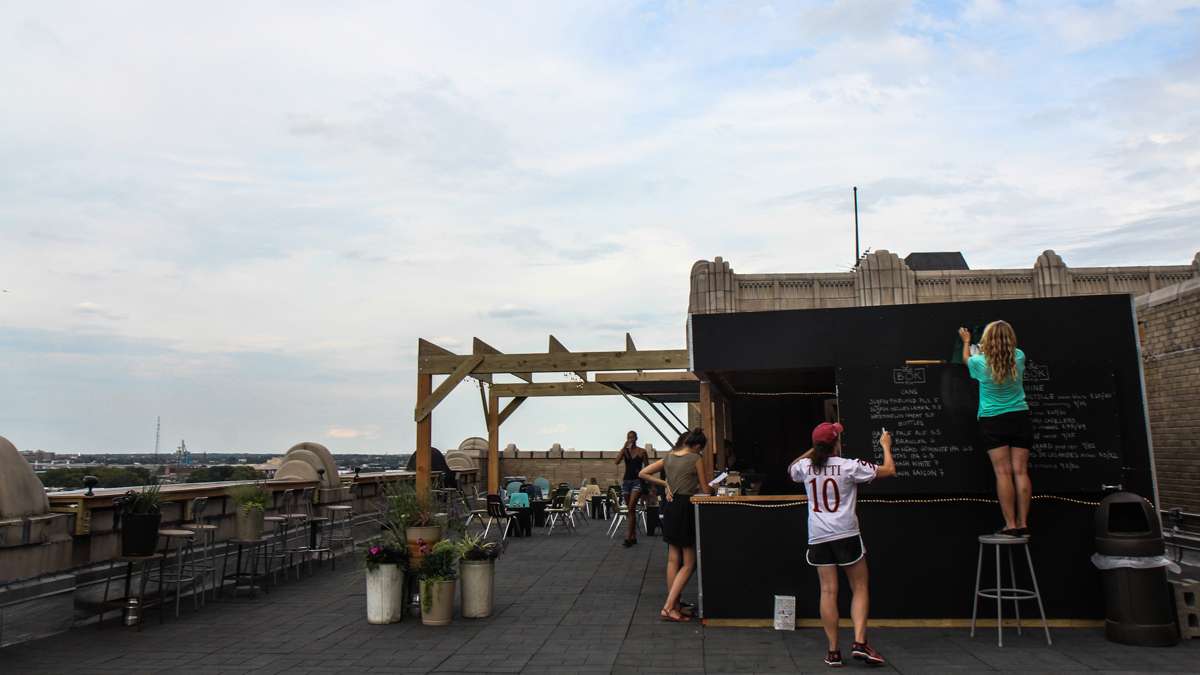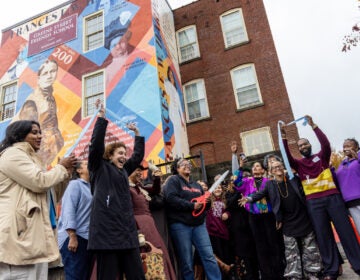‘Le Bok Fin’ debuts on rooftop of former South Philly school [photos]
ListenLe Bok Fin has opened on the roof of Bok Technical School, a former public high school in South Philadelphia.
It’s not the revival of Le Bec Fin, the popular, upscale French restaurant and seminal Philadelphia dining institution, which closed its Walnut Street doors in 2013. Rather, Le Bok Fin — a temporary, open-air French restaurant and bar — is entree into an urban development experiment.
At Eighth and Mifflin streets, Bok Technical School is an imposing Art Deco block eight stories high with 340,000 square feet of space. The Philadelphia School district shut it down two years ago, looking for a buyer.
“We closed on the building just 30 days ago,” said Lindsey Scannapieco on Thursday. The new owner was rushing to pull together the soft opening of Le Bok Fin. Her team has had just enough time to install a wooden bar along the rooftop parapet, a temporary catering kitchen, and two open-air bars on the 8,000-square-foot terrace on the eighth floor.
Le Bok Fin is named after the “restaurant” of Bok Technical School’s culinary program. Cooking students used to sell their goods to fellow students, staff, and neighbors out of their fully equipped industrial kitchen on the third floor.
That kitchen is still there. Whatever the future development of the building will be, it will likely remain.
“The infrastructure is here: the plumbing, the gas, the ventilation. These are all huge cost items,” said Scannapieco. “It made sense to say, ‘This space should stay a kitchen.’ It’s built for that.”
Scannapieco — the daughter of Tom Scannapieco, the developer of the luxury high-rise 1706 Rittenhouse and the forthcoming 500 Walnut — envisions Bok populated with artists and small manufacturers using the building’s existing infrastructure. As a vocational school, it was built with science labs, woodworking shops, mechanical shops, and a 1400-seat, two-tier auditorium with original Art Deco fixtures.
“It’s in really great condition,” said Scannapieco. “It has an amazing terrazzo floor, beautiful marble siding, robust systems. It’s concrete, with five loading docks and four elevators with 6,000-pound weight capacity. It’s all here.”
As her first development project, Scannapieco is using an organic approach by letting the space, its neighbors, and its tenants determine show it should be developed.
She has a background in activating abandoned and underused spaces in London with Scout, a group of creative urban designers. In 2011, they created a pop-up cinema out of old refrigerators in East London.
“That was really successful, but we challenged ourselves and ask, ‘Did we make a difference to that neighborhood?'” she said. “We were hard on ourselves. We thought we could do a lot more.”
The stakes are higher at Bok. Any pop-up events have to be more than just a novel way to temporarily activate a space — they have to build a long-term communal vision of what the building becomes.
To do that, the community has to see the space, get to know it. Have a drink with it.
The Bok building, built in 1936, is one of the tallest in South Philadelphia, affording an amazing view of a sea of rowhomes, the downtown skyline sprouting in the distance. The eighth-floor terrace was once used as a recess play area, but nobody had used it for a generation. Changes to the city’s fire code made the top two floors incompliant; they have been sealed off for 15 years.
Scannapieco says the city’s Department of Licenses and Inspections allowed the temporary use of the seventh and eighth floors, based mostly on the fact the building has a working fire alarm system.
The roof terrace can accommodate 300 people, many of whom will be drawn to the bar installed on the parapet between its Art Deco filigrees. Two bar stations will pour beer and wine. The catering company Fine Palate will serve a changing French menu of items like beef tartare, croque monsieur, fries and poutine, and pot de crème.
The whole operation will shut down Sept. 13, never to return to the roof.
“It’s not a pop-up. It’s a larger story,” said Scannapieco. “It’s letting people enjoy it in this moment, but also thinking about the future of what this building will be. It’s an iterative approach. We’re putting grease on the wheels, start getting people excited.”
After Le Bok Fin closes, Scannapieco wants to open more parts of the building in a piecemeal, pop-up fashion with temporary events and installations — but don’t call them pop-ups. It’s “iterative placemaking,” she said.
WHYY is your source for fact-based, in-depth journalism and information. As a nonprofit organization, we rely on financial support from readers like you. Please give today.







